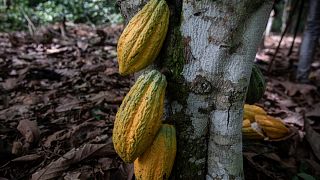Egypt
Egypt’s agricultural export is expected to grow by about 15 per cent in 2017 in comparison to 2.2 billion US dollars recorded last year.
This growth has been attributed to the states decision to float its currency in November.
The move has led to a surge in demand as the fruit and vegetables are now more competitively priced on the global market.
“November’s flotation of the currency gave a push to Egyptian agricultural producers and exporters, so if we pay attention to the last three months of last year, we’ll see that agricultural exports have increased by a lot, by rates higher than previous years. This is a result of the currency flotation, which led to a more competitive ability for Egyptian exports and opened new markets, which we had been working on for maybe two years,” said Mostafa Al-Naggari, Chairman of Fresh Fruit Co.
According to reports demand has doubled, with every product gaining one or two markets. The growing interest follows a turbulent year for Egyptian produce after a temporary ban of fruits and vegetables in one of Cairo’s top buyers, Russia.
Emad Said, senior managing director at Japan Solution said, “The clever ones will expand to new markets and seize this opportunity – because no matter how much prices have increased on the local level, the devaluation of the pound covers these increases and makes us competitive.”
Analysts believe that along with a sharp reduction in imports, a rise in agricultural exports could help narrow the country’s ballooning trade deficit.
Reuters













01:06
China to scrap tariffs for most of Africa from 1 May, says Xi Jinping
01:06
Botswana weighs tax hikes as diamond slump hits state revenue
01:01
South Africa produces first local vaccine to combat foot-and-mouth disease
01:14
Egypt's inflation expected to slow in January as food prices fall
01:12
US President Donald Trump signs short-term extension of AGOA
11:16
Tanzania eyes East Africa’s pharmaceutical hub crown {Business Africa}